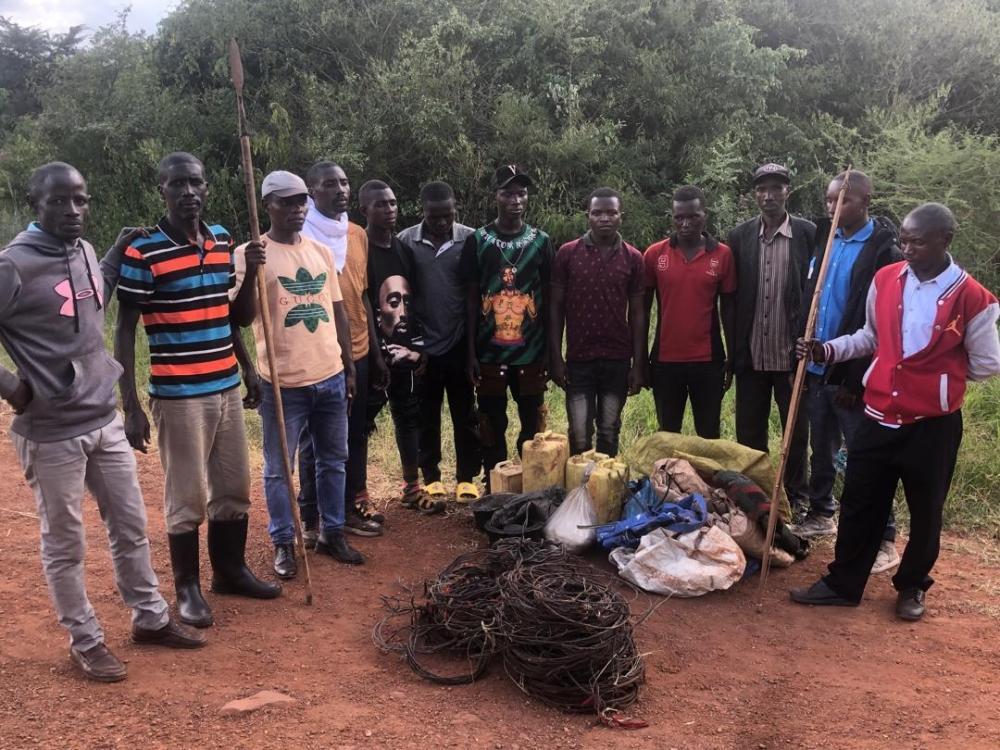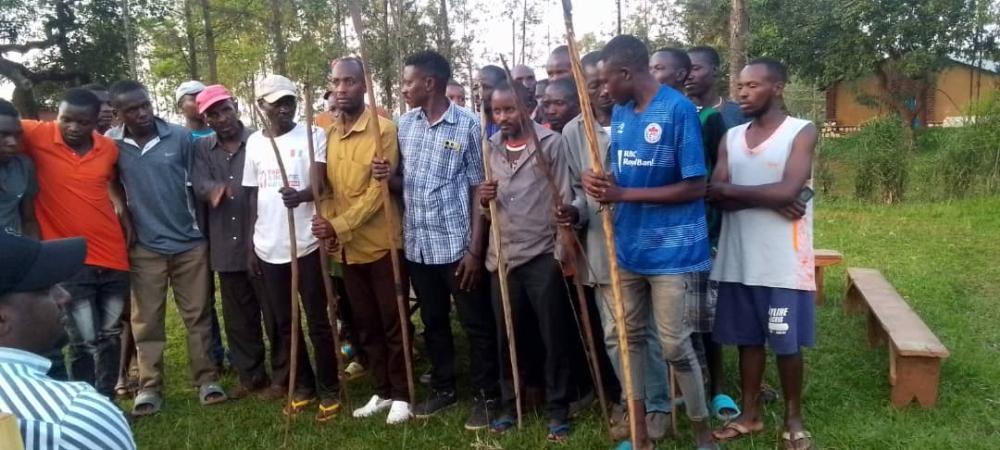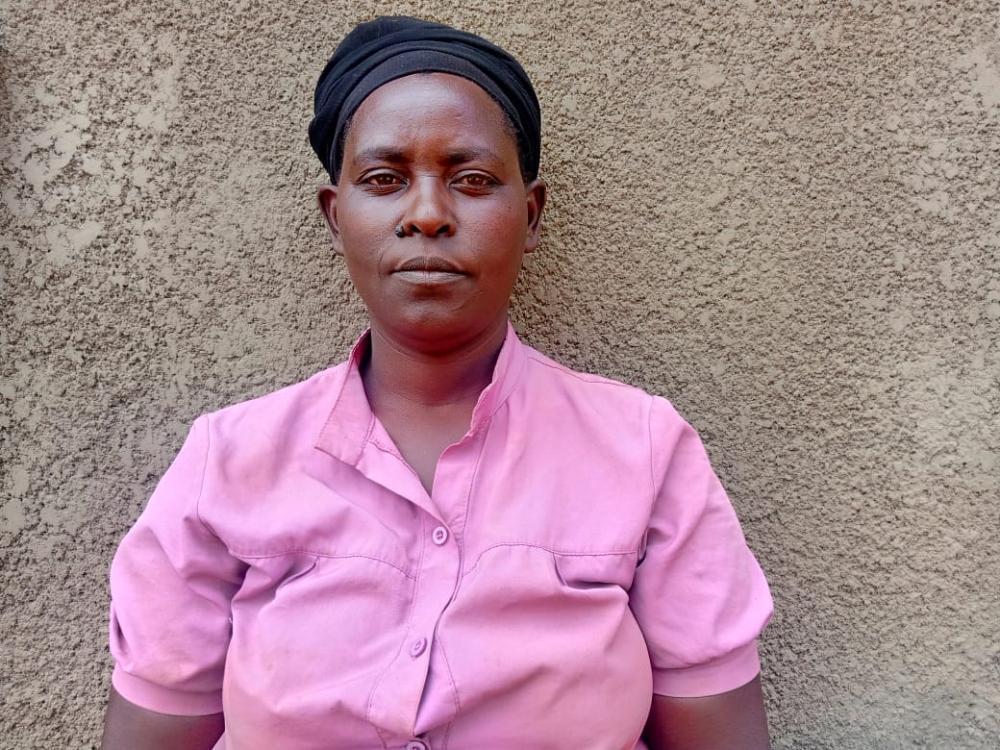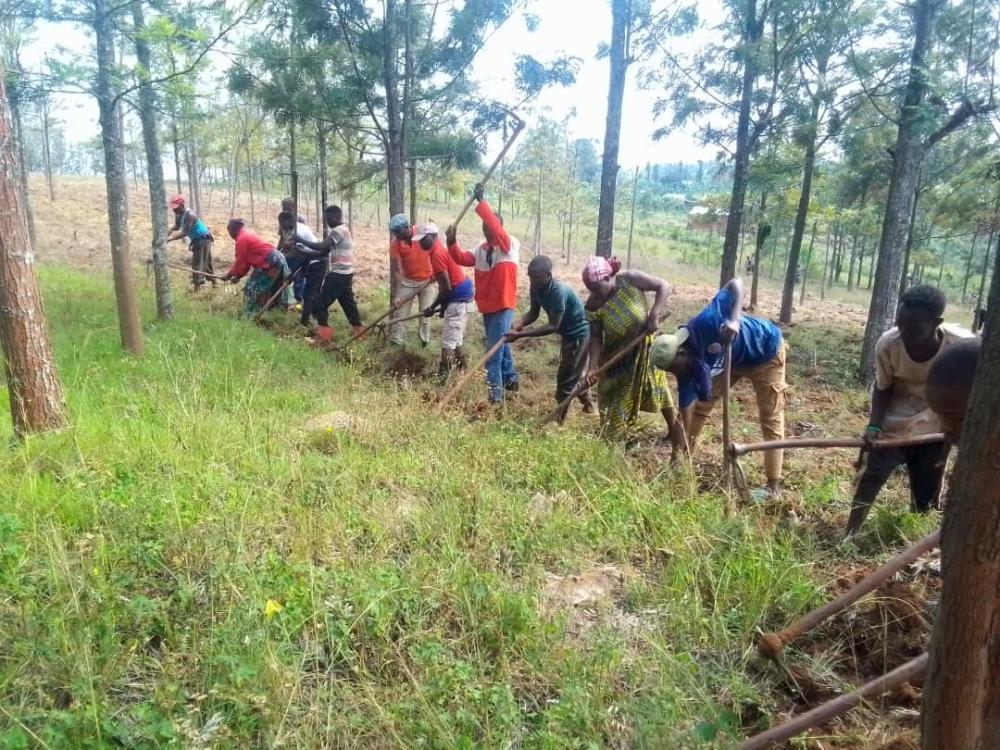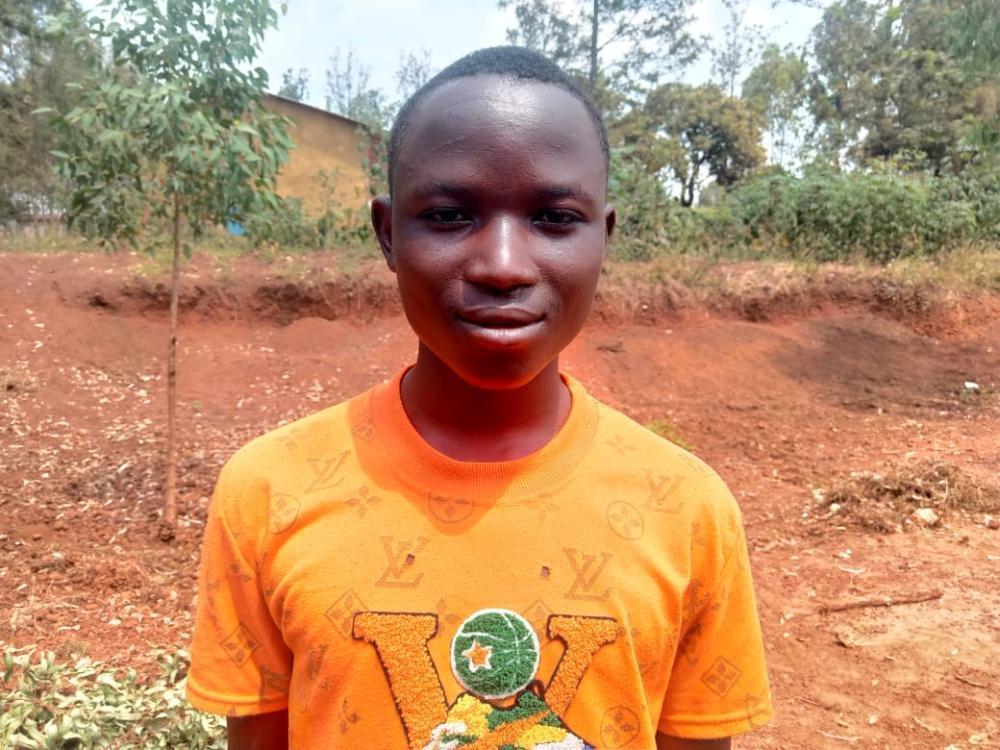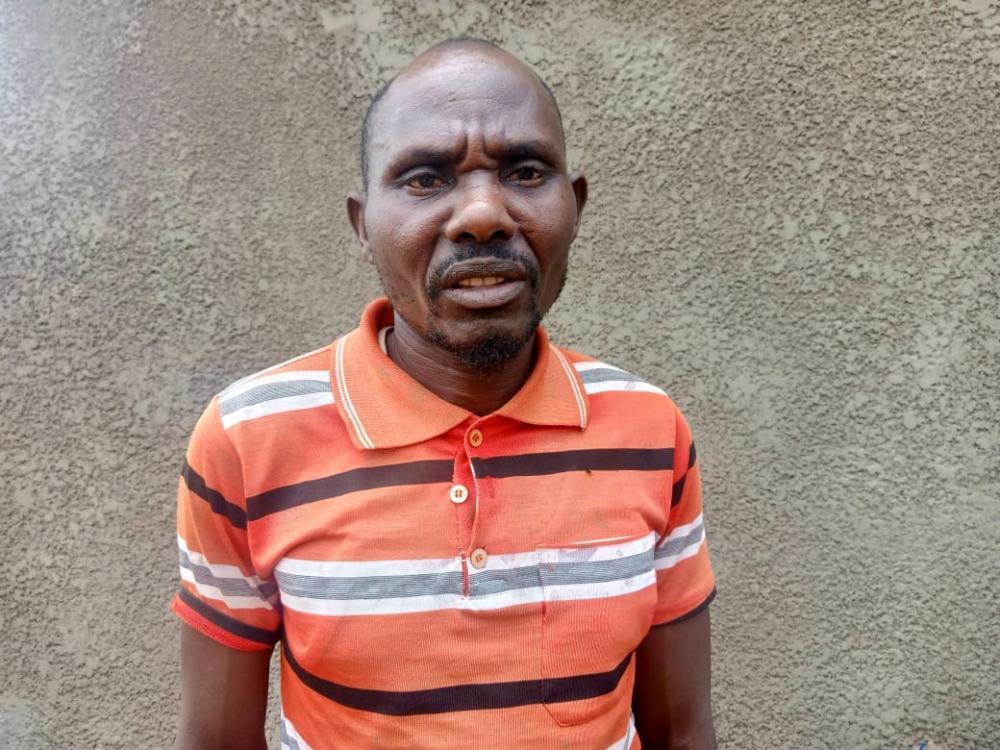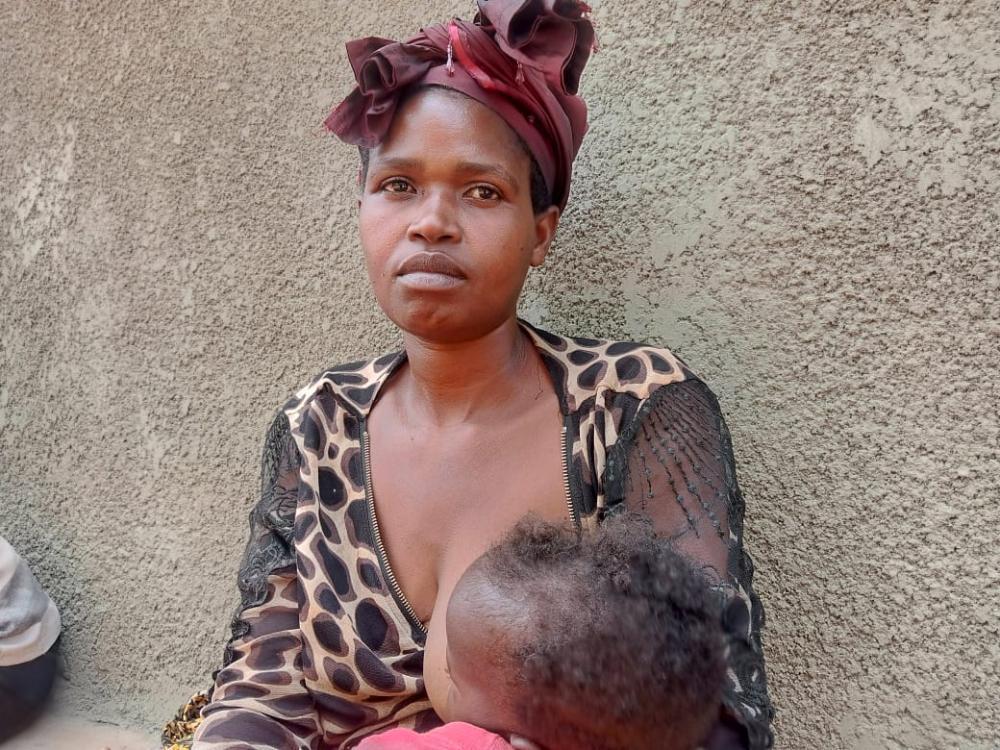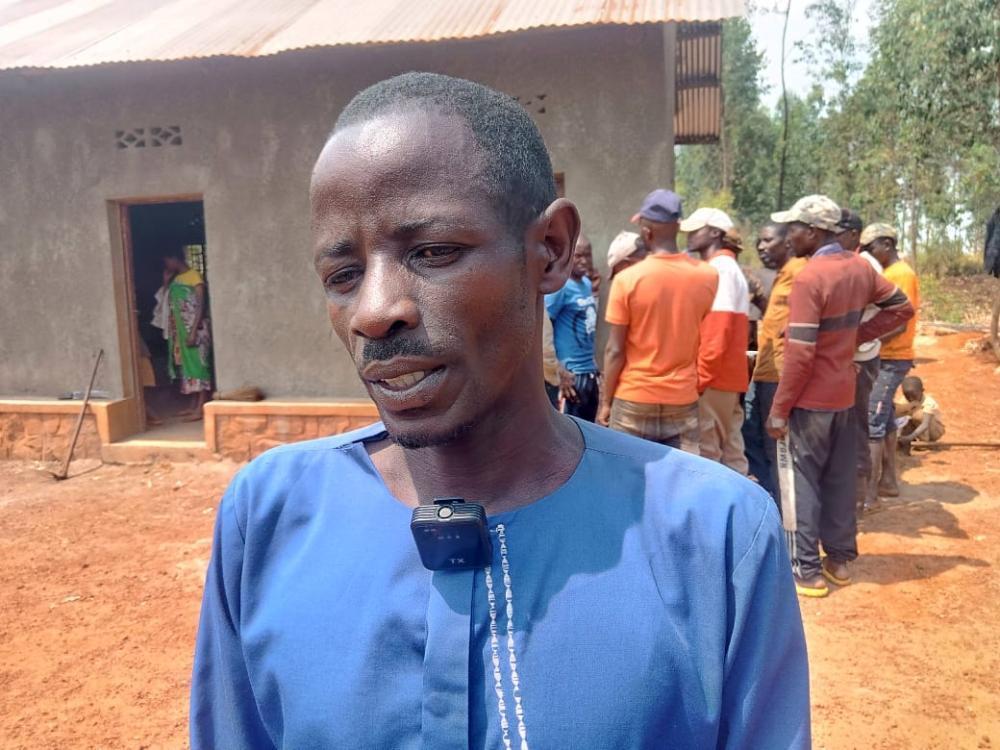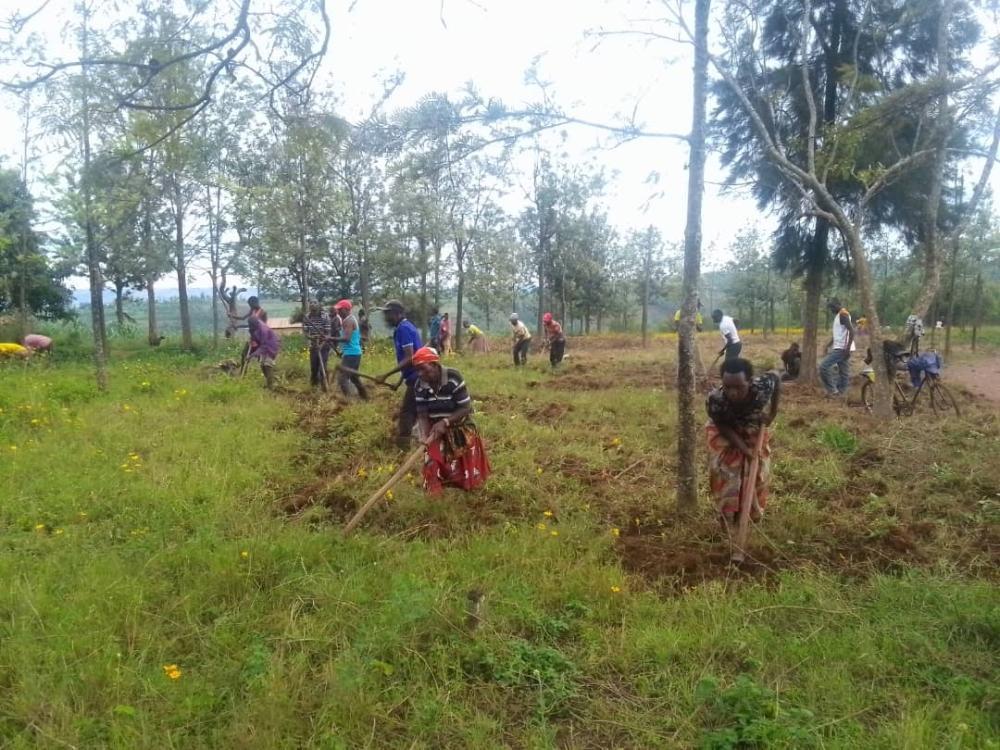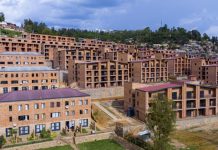Africa-Press – Rwanda. Sixty residents of Kayonza District, many of them former poachers, have voluntarily surrendered their hunting tools and formed a farming cooperative in a community-led effort to reduce fatal encounters with wildlife near Akagera National Park.
The initiative, which started informally in 2023 and was formalised six months ago, seeks to promote conservation while providing sustainable livelihoods for affected families.
Issa Ntakiyimana, once a poacher now leads the Tubungabunge Urusobe rw’Ibinyabuzima cooperative. After years of witnessing his peers die in the park, he turned his back on poaching and convinced dozens of others to do the same.
“Many people died in that park,” Ntakiyimana says. “In my own village, six residents have been killed by animals over the past two years—some electrocuted by the park’s electric fence, others mauled by wildlife.”
In 2023, Ntakiyimana and five others began moving door to door, persuading fellow poachers to abandon their spears and traps. Within months, nearly 60 people—including widows of hunters who died—had joined the initiative.
He warns others that Akagera is now home to even more dangerous animals, including lions and black rhinos reintroduced as part of conservation efforts.
The cooperative now operates as a grassroots conservation and development group. Local authorities granted them two hectares of farmland for food crops and an additional 30 hectares for coffee cultivation. They have also established a savings and loan scheme to support small businesses and household projects.
“After raising awareness, we handed over eight spears, seven bows, and 25 traps previously used to hunt animals like buffalo and antelope,” Ntakiyimana explained. “We also worked with park rangers to locate 86 wire snares, eight makeshift tents, and cooking pots hidden in the park during illegal hunting expeditions.”
Among those impacted by poaching is Jean D’Arc Mukanterina, a mother of a seven-month-old baby, whose husband was imprisoned for hunting. “Life is difficult without him,” she said. “Paying for health insurance is a challenge, and getting food is tough.
But I’d rather have him alive in prison than buried in that forest.” Through the cooperative’s savings group, she has managed to buy two hens. “It’s a small start, but it’s hope.”
The cooperative includes 40 former poachers, eight people directly affected by poaching, and 12 community volunteers who helped raise awareness about its dangers.
Jean Bosco Musigirende, known locally as “Rasta,” spent nearly three decades poaching before serving six years in prison. “I led hunting teams,” he said. “Now, I lead them on the farm. Coffee will earn us more, without the danger.”
Frank Habakwizera, 20, from Bunyetongo Cell, began accompanying hunters at age 13 after watching his father and relatives poach. “One day, a friend was killed by a buffalo. My father also never returned. Going there is suicide,” he said. “Today, I’m one of the youth advocating against poaching. These animals bring in foreign income—we should protect them.”
Chantal Musabyemariya, a widow and mother of three, lost her husband to an electric shock as he tried to cross the park fence. She now serves as a cooperative inspector. “We used to be isolated and grieving. Now we’re working together. We farm, we share, and soon we’ll raise pigs,” she said.
Thanks to the cooperative, she’s managed to pay for health insurance and school meals for her children and has saved Rwf 15,000. “The cooperative will improve livelihoods for former poachers as the new farming season begins,” she said. “I feel supported. We’ve been given land and the authorities plan to build pig shelters for us. I thank the government—many lives have been saved.”
Eastern Province Governor Pudence Rubingisa speaks to the media during a community outreach event in Murama Sector, Kayonza District, urging residents to protect Akagera National Park
During a recent outreach in Murama Sector, Eastern Province Governor Pudence Rubingisa urged communities near Akagera to intensify efforts to protect the park, stressing its contribution to national development through tourism revenue.
“Let the protection of the park be everyone’s responsibility,” he said. “Poaching may be declining, but activities like starting fires in search of pasture continue to harm biodiversity. The more we safeguard the park, the more it attracts tourists, whose spending helps build our roads, schools, health centres, and provides clean water.”
Park revenues have seen steady growth. In 2021/2022, Kayonza received Rwf 341 million. This rose to Rwf 540 million in 2023/2024 and is projected to reach Rwf 780 million in 2024/2025.
A group of former hunters in Murama stand together after surrendering traditional hunting tools, marking their commitment to wildlife protection and the start of a new chapter in cooperative farming.
Chantal Musabyemariya, 41, a widow and mother of three who serves as an inspector for the cooperative. Her husband was killed by an electric shock from the park’s fence. The cooperative has helped me a lot, she said.
Former poachers in Murama engage in collective farming activities as members of the “Tubungabunge Urusobe rw’Ibinyabuzima” cooperative, a community-led effort promoting conservation and sustainable livelihoods. (2)
Frank Habakwizera, 20, started accompanying hunters at age 13 after watching his father and relatives hunt. One day, a friend was killed by a buffalo. My mother also never returned from the park, he said.
Jean Bosco Musigirende, also known as Rasta, spent 27 years hunting in Akagera National Park before being jailed for six years. I used to lead the team into the park, he said. Now, I lead them in farming.
Jean D’Arc Mukanterina, a mother whose husband is serving a prison sentence for poaching. Life is difficult without him, she said. But I’m grateful he’s in prison rather than dead, like many others.
ssa Ntakiyimana, president of the Tubungabunge Urusobe rw’Ibinyabuzima cooperative, speaking to members. The former poacher now leads the 60-member group that surrendered hunting weapons and turned to farming.
The cooperative comprises 40 former poachers, eight people directly affected by poaching, and 12 community volunteers who helped raise awareness about the dangers of hunting.
For More News And Analysis About Rwanda Follow Africa-Press

